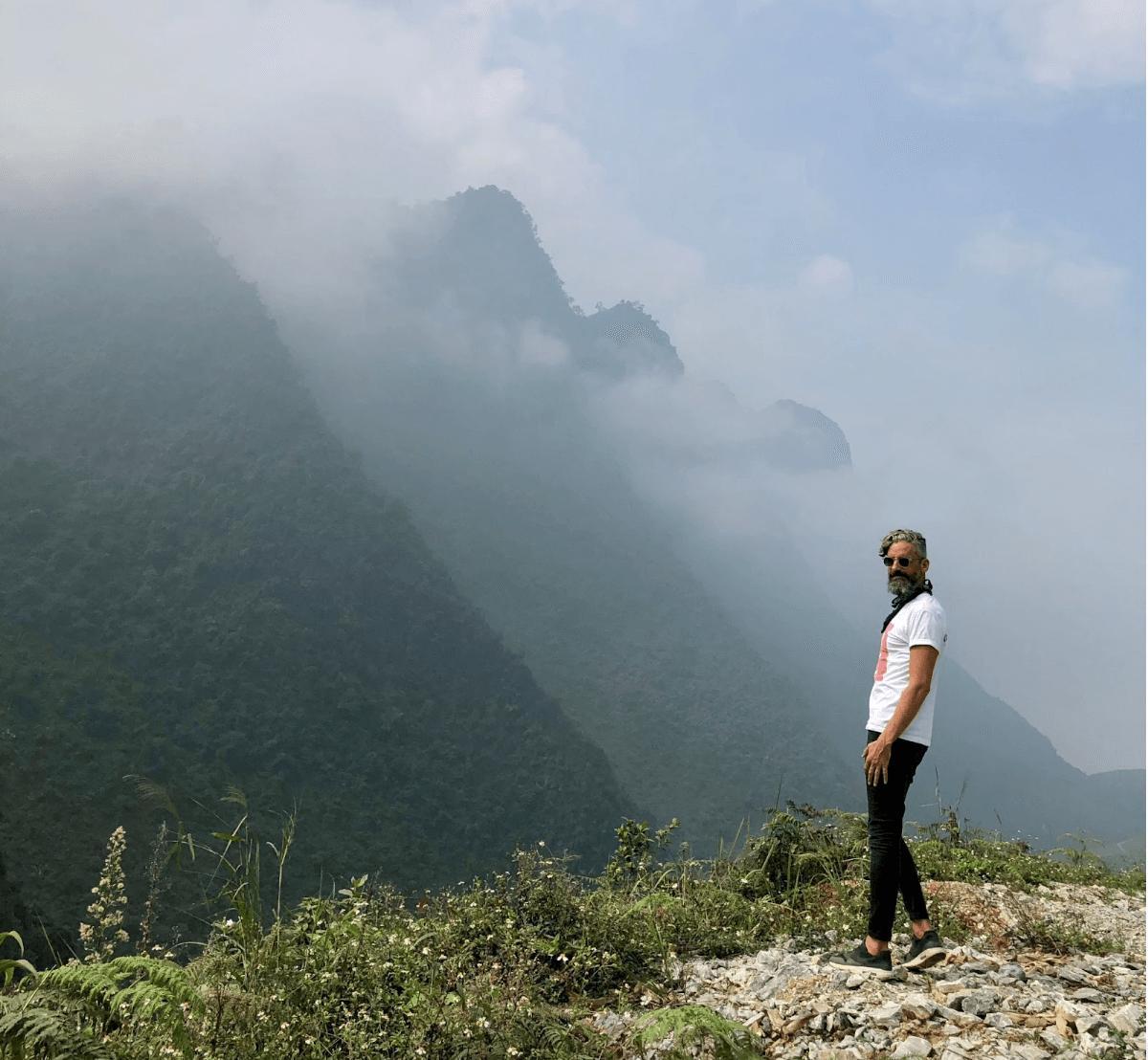One of the great joys of becoming an adult is the freedom to do what you want without having to ask for permission. For me as an itchy-footed teenager, that meant the freedom to travel. But when I embarked on my first road trip around the UK at 17, crisp new driving licence in hand, there was something I hadn’t taken into account. How old you have to be to book a hotel room.
Many airlines let unaccompanied minors as young as 12 to fly on their own (with adult permission, of course). But when it comes to booking a hotel room, typically, the answer isn’t as straightforward. It varies wildly not only from country to country but also from hotel to hotel.
Read on to see how old you have to be to get a hotel room in the UK and overseas.
How old do you have to be to book a hotel room in the United Kingdom?
This is because, “Anyone under the age of 18 does not have the same legal capacity as an adult to enter into a contract, such as making a room booking”. Sometimes referred to as the ‘legal age of majority’, this approach applies across the UK.
Visit Britain caveats this, however, by saying that “You can accept bookings for someone under 18 to stay, but you should be careful. For example, the booking itself should be made by someone 18 or over – such as a parent, guardian or another adult who can take responsibility for payment or damages.”
This means there’s no definitive legal answer to the question, and instead it falls to the hotels to decide.
Do hotels have minimum age policies for booking?

In the UK, all the major hotel chains enforce a minimum age of 18 to book a room.
There are various reasons for this. The primary being that minors (anyone under 18) can’t be held legally responsible for a contract they enter into. This includes the contract formed when booking a hotel room. Hotels may find themselves liable for anything that happens to guests during their stay. And insurance policies likely won’t cover unsupervised minors.
Hotels also want to ensure all their guests have a great stay and having minors there may make that hard. Children, after all, aren’t always renowned for being able to follow some rules. Being quiet, respecting other guests, not causing any damage and even not paying are all concerns. And if the room has a mini bar with unrestricted access to alcohol, it can lead to even more problems.
Some individual hotels may be more flexible and allow 17-year-olds to book, but that’s the exception rather than the rule. In such cases, the hotel may require an adult to sign a waiver making them liable for the guest who’s staying. If in doubt, check the hotel’s terms and conditions on their website or call in advance and ask.
Internationally, this minimum age of 18 is commonplace, but certainly not true of all hotels in all countries. Many hotels across the Middle East and Africa enforce a minimum booking age of 21. And in the US, it varies according to state laws and local ordinances.
What are the age policies for specific hotel chains?
It’s always important to check individual age policies before booking a hotel. Here are the current policies for the most popular hotel chains in the UK and around the world.
- Travelodge: You must be 18 years or older to book a room and to stay alone. This means an adult can’t book a room on behalf of a minor.
- Premier Inn UK & Ireland: You must be at least 18 years old to make a reservation. Anyone under 18 years old isn’t permitted to stay unless a guardian is also staying in the hotel.
- Hilton Hotels & Resorts: Hilton states you must be at least 18 to book a room via its website. Some of its international resorts have a minimum age of 21. It asks you to contact the specific hotel directly for assistance if you’re younger.
- Marriott Bonvoy: Most Marriott hotels require guests to be 18 years or older to check in. Some all-inclusive adult-only international resorts have a higher minimum age of 21.
- InterContinental Hotels Group: Most IHG hotels, including the very popular UK Holiday Inns, require guests to be at least 18 to check in. However, if you are travelling internationally, the minimum age can be as high as 21.
- Hyatt: Generally, the minimum age to reserve a room is 21 but it aries by hotel, so it’s best to check first. A person of the minimum age requirement must be present at check-in and become a registered guest in the room.
- Radisson Hotels: In the UK, you must be over 18, but most Radisson hotels abroad will have a minimum age of 21.
To be sure, it’s best to call your chosen hotel before you book.
Age to book versus age to check-in

It’s important to remember that booking a hotel room and checking into it are not the same thing. Anyone can go online and book any room – all you need is a valid credit card. It’s at reception where you may run into problems if you’ve used, say, your parents’ card to book.
Hotels typically won’t ask you how old you are as they don’t want to appear discriminatory. But they will ask you for a government-issued ID or passport and credit card, even if you prepaid your room online.
If you fall below a hotel’s minimum age requirement and you’ve already paid, you might not even get a refund. Because of this, make sure you check at the time of booking. And if they will let you check in as a minor, ask what requirements come with that, such as a signed letter of indemnity from the credit card holder.
Booking a room and checking in around the world
Countries all over the world consider age requirements differently. Take a closer look at policies around the world.
Europe
In general, Europe follows a similar rule to the UK. Booking and check-in policies typically require guests to be at least 18 years old to stay alone. This can vary by individual hotel or hotel chain, since a company’s policy may specify a higher check-in age.
Americas
Canada and Mexico typically ask guests to be over 21 years old. The USA is a bit more complicated and can vary depending on state laws (although 21 is the standard). For a comprehensive breakdown, take a look at the KAYAK guide to how old you have to be to stay in a hotel in the US. In South America, it is generally possible to check in at 18 years old.
Africa, Asia and Australia
While the standard around the world is 18 years old, Southeast Asia and parts of Africa may have more lenient policies, or not enforce policies strictly. As always, it’s best to check before you book.
Conclusion
The simple conclusion is that there is no strict, consistent, legally enforced rule for how old you need to be to book a hotel room.
In the end, it is the hotel’s decision, and you’ll rarely find a hotel that doesn’t hold guests to some age standard. After all, hotels need to protect not only themselves and their reputations but also their other guests. They also need to make sure they get paid – minors can’t be held liable for debts.
So if you or one of your kids is heading off alone and is under the age of 21, there’s only one golden rule to follow: check directly with the hotel you want to stay at for their specific policies.
Now you know whether you’re old enough to check into a hotel, KAYAK can help you find the perfect stay for you. That could be anything from an all-inclusive hotel to a hostel, a motel or my personal choice, a boutique hotel.
FAQs
In the UK (or Europe) it is unlikely you will be able to book and stay in a hotel alone at the age of 17.
Typically in the UK, hotels require that their guests be at least 18 to book and check in. Internationally that age can go up to 21 depending on the country, state and municipality.
Individual hotels may have age requirements that differ slightly, so it’s best to check with your own hotel before you commit.
Yes, almost all hotels will ask for an official ID like a passport when you check in (and if they don’t it’s usually down to an oversight by the check-in staff). This is usually to confirm you are who you say you are, to make sure your booking details match your payment details, and in the US in particular because it could be considered discriminatory to ask your age. If you don’t provide a valid ID, they may cancel your reservation and not refund your deposit.
There’s no international law that prohibits a hotel from checking you in under 18 years old. However, hotels want to be paid and protect their guests. People under 18 aren’t as likely to be carrying a credit card to act as a safety deposit for damage to the room. Because a hotel can’t hold a minor to its contract, it may choose not to allow them to check in. Why tempt fate? Call the hotel first.
Just like the rest of Europe, the standard age to book a hotel in Spain is 18+. In some private rooms in hostels, the age limit may be 16. It is always best to check with the individual hotel or lodging you want to book.
1







